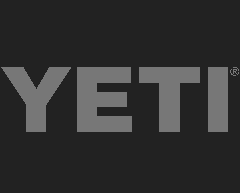Originally submitted to the Houston Chronicle as an op-ed.
Public oyster reefs in Texas are suffering. Increasing demand and diminishing supply have put our public reefs at risk. The compounding effects of increased fishing pressure in smaller areas, hurricanes, tropical storms, droughts, flood events and unscrupulous actions by some within the commercial oyster industry have resulted in unprecedented destruction and loss of our public oyster reefs. As the public oyster season drew to a close this past April, nearly 70% of the public shellfish harvest areas were closed by the Texas Parks and Wildlife Department (TPWD) because more than 65% of the oysters in their samples were “undersized”. This statistic alone should serve as a wakeup call for us to do more to conserve the resource.
Fortunately, Rep. Ryan Guillen (D-31), Rep. Dennis Bonnen (R-25), Sen. Juan Hinojosa (D-20) and Sen. Lois Kolkhorst (R-18) understand the critical nature of the situation and have successfully passed House Bill 51 through both the house and senate during the 85th legislative session. House Bill 51 allows willing participants in the commercial oyster industry to sell their commercial oyster license back to the state of Texas, applies enhanced penalties for egregious violations for possession of undersized oysters, allows TPWD to establish a vessel monitoring system and perhaps most importantly, requires that oyster dealers return 30% of the shucked shell back into designated waters or pay TPWD to perform that service.
There are over 2,000 acres of privately leased oyster reefs and approximately 23,000 acres of public reefs. The private lease holders make significant investments in their reefs. They plant shell and river rock to establish and maintain a hard bottom and substrate to establish new reefs. They also meticulously cultivate their reefs to grow their oysters to the perfect legal size – depending on their respective markets. There is a sense of ownership with regards to private leases, and as a result there are very few citations issued for oyster regulation violations.
Fishing practices on public reefs are a different story entirely. In the past six years, 700 cases have been made for undersize oyster violations, with many of them having greater than 30% undersize oysters. Just read the April 17, 2017 front page story of the Houston Chronicle regarding the commercial oyster harvest in Christmas Bay, and you will get a notion of what is becoming all too common on our public reefs.
Oysters play critical roles in the coastal environment. They provide nursery and predation refuge habitats for numerous estuarine fish and invertebrates, serve as organic biomass for coastal food webs, stabilize our shorelines, reduce coastal erosion and sedimentation, and are major biological agents through filtration in nutrient cycling and water quality processes. Oysters typically grow as consolidated reefs providing important habitat for a variety of other marine organisms. A total of 303 different marine aquatic species have been identified that use oyster reefs for habitat, refuge and food. In fact, oyster reef habitats support nearly 4.5 times the aquatic biomass found in seagrass beds and roughly 11.5 times the aquatic biomass found in marsh edge habitats.
Think about that for a moment.
We, as a state, take extreme measures to protect our seagrasses and smooth cordgrass marshes on our coastal shorelines, and rightfully so. It is time for us to offer additional protections for our public oyster reefs, and House Bill 51 will be a long-term effort in that regard.
We would like to thank Rep. Ryan Guillen, Rep. Dennis Bonnen, Sen. Juan Hinojosa and Sen. Lois Kolkhorst for successfully passing this historic legislative action to conserve our public oyster reefs and urge Governor Abbott to sign this bill into law.
Shane Bonnot – Advocacy Director for Coastal Conservation Association Texas
Scott Jones – Director of Advocacy for Galveston Bay Foundation
John Shepperd – Executive Director of Texas Foundation for Conservation





